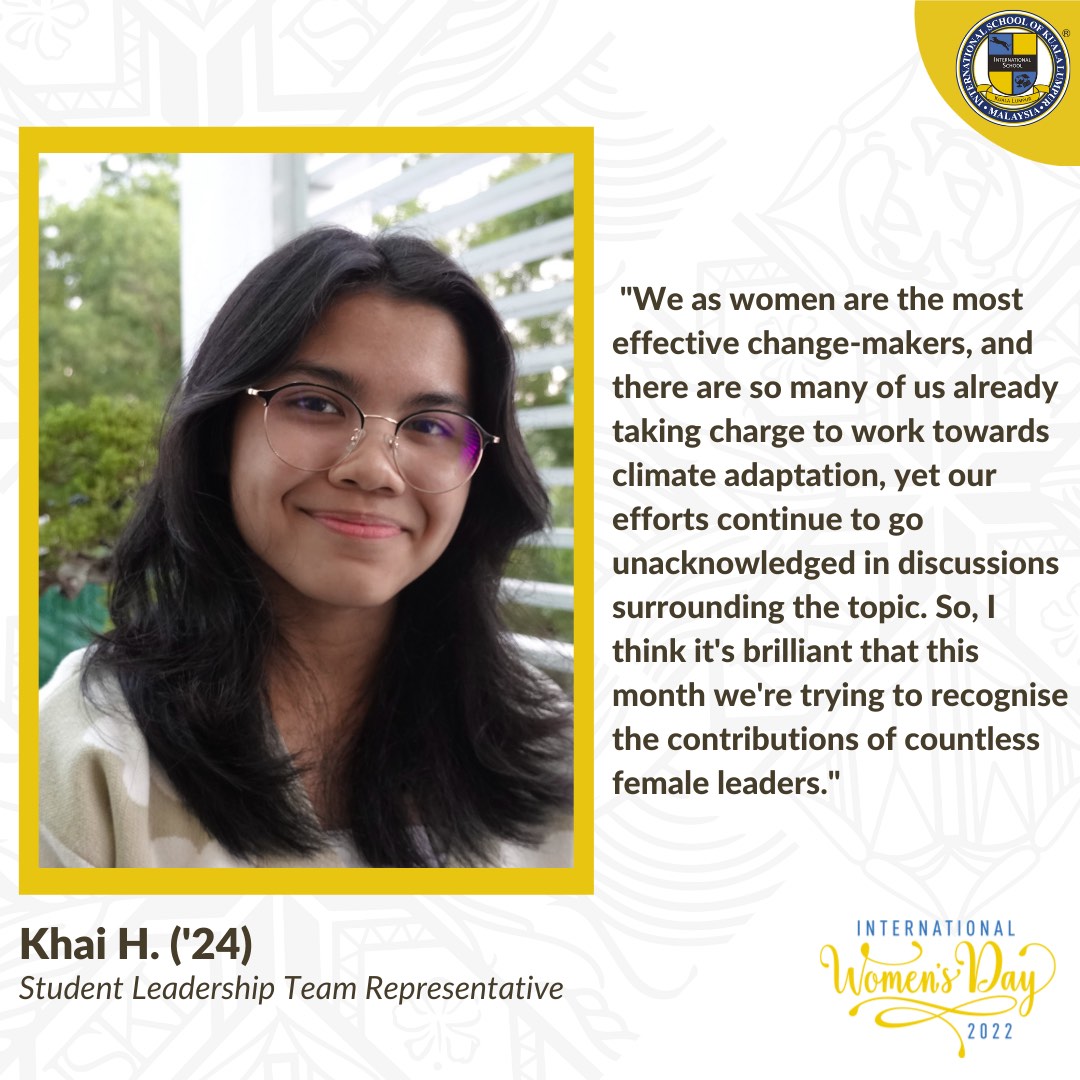
Source: Burcu Köleli for UN Women (2022).
The theme for International Women’s Day (IWD) 2022 is “Gender equality today for a sustainable tomorrow.” It focuses and recognizes women’s integral role in leading sustainability efforts, fighting against climate change, and movements towards a greener and more sustainable future.
In celebration and reflection of this year’s theme, we have compiled some answers from women in our ISKL community



to share their thoughts on the importance of gender equality in the challenge to protect our planet and mitigate the current environmental issues we face.
Read on to find out what our High School students Devika N. (’23) from the Green Council, Jiya V. (’23), Kiarra A. (’23), and Eva N. (’24) from the Earth Club, Khairin H. (’24) from the Student Leadership Team (SLT), ISKL Parent and former Alumni Relations & Development Director Lynette MacDonald, and staff members Krystle van Dijk and Melissa Lee have to say about why the responsibility to preserve and protect our planet is not of man, but of humanity.
- What’s your view about this year’s International Women’s Day topic?
Jiya: Gender equality and climate change are two critical topics. I think that it is crucial to recognize how women worldwide are taking climate change into consideration and responding to the crisis. Without gender equality, I don’t believe that a sustainable tomorrow is achievable.
- What do you think of this sentence?
“Gender equality today for a sustainable tomorrow,” recognizing the contribution of women and girls around the world, who are leading the charge on climate change adaptation, mitigation, and response, to build a more sustainable future for all.
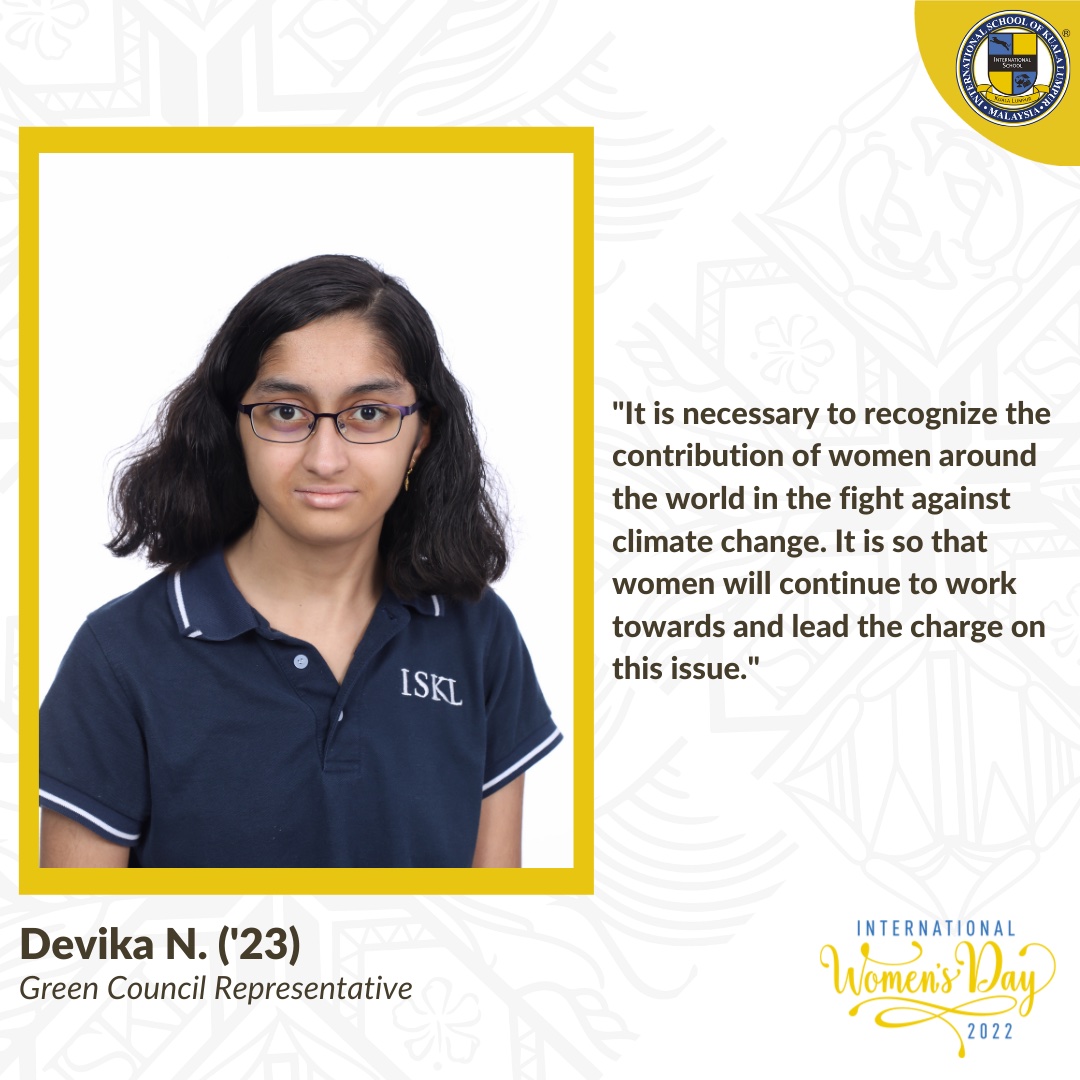
Devika: Women make up approximately 50% of the population. Without both genders involved in working towards sustainable development, it will never be possible. That is why it is necessary to recognize the contribution of women around the world on this issue. These women are role models, inspiring girls to continue working towards a more sustainable future.
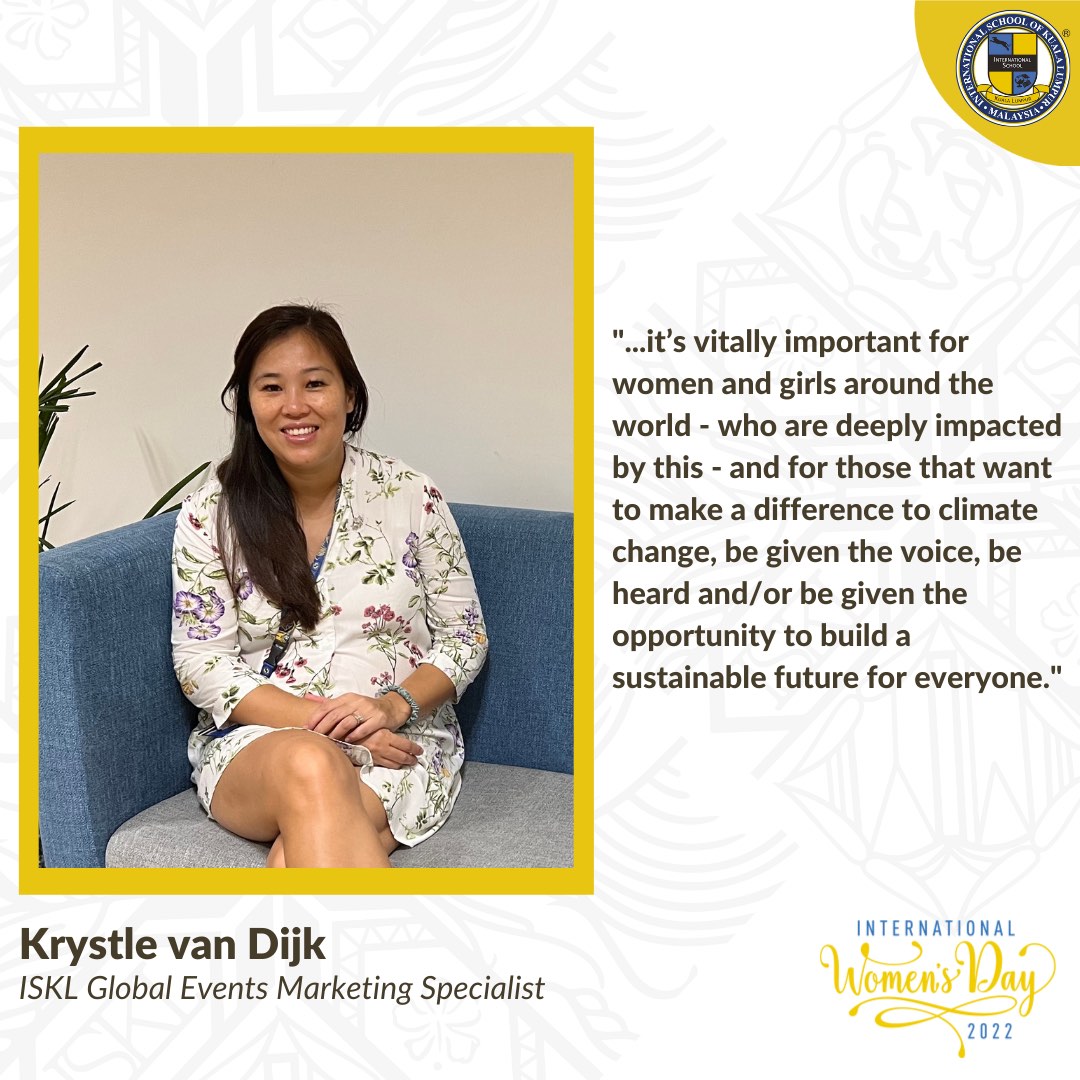
Krystle van Dijk: I think this sentence is powerful, and I fully stand by it! We all live on the same planet, and we all have the responsibility of living together and taking care of it together. Everyone should be given the opportunity to be part of the sustainable future if they want to lead change or be involved in the decision-making process. According to the UN, the issues of climate change and sustainability will continue to have severe and lasting impacts on our environment, economic and social development. Unfortunately, women are the most vulnerable to climate change than men. They take up a larger portion of the world’s poor population and are dependent on natural resources to survive. Hence, why I feel it’s vitally important for women and girls around the world – who are deeply impacted by this – and for those that want to make a difference to climate change, be given the voice, be heard, or be given the opportunity to build a sustainable future for everyone.
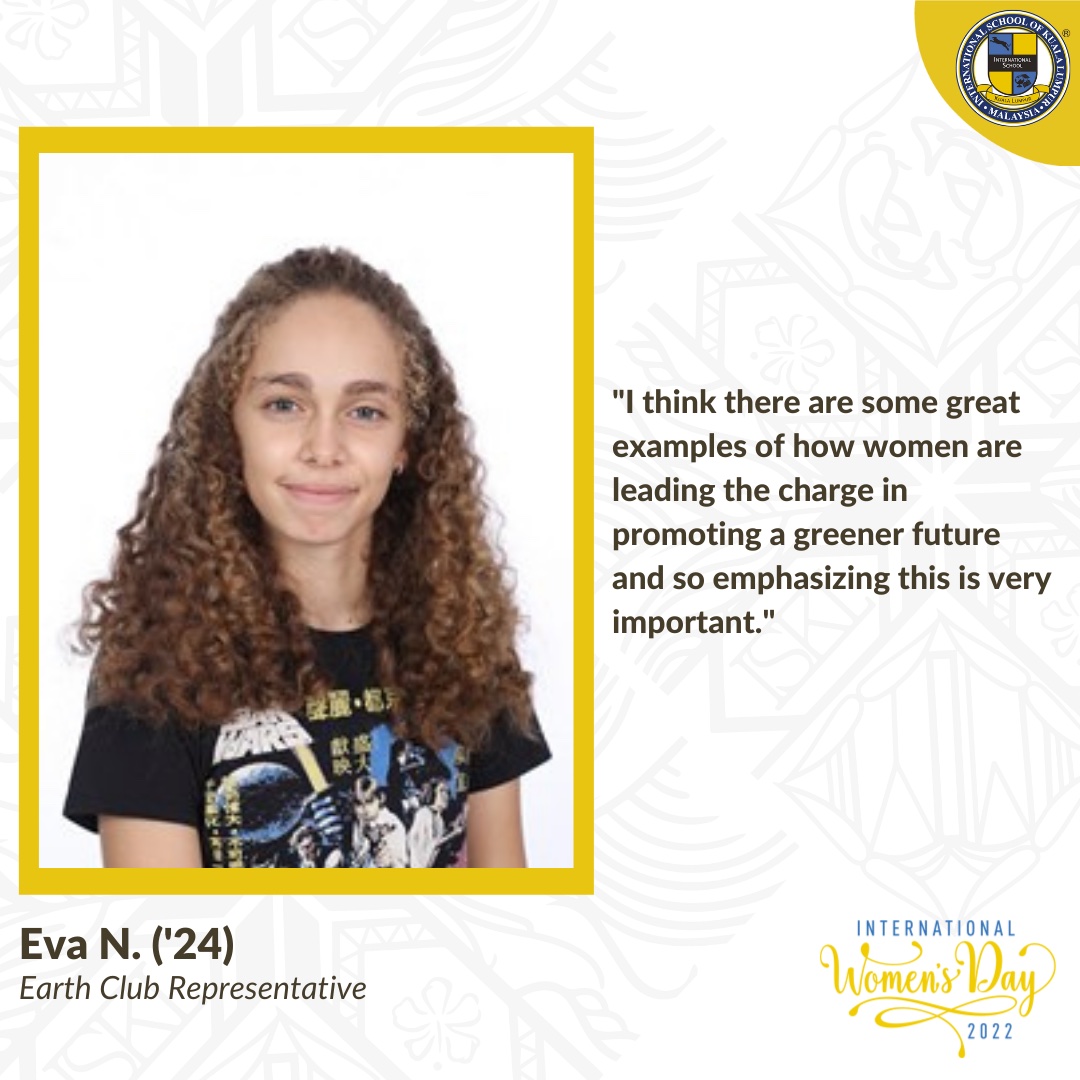
Khairin: This sentence holds so much value as it highlights a connection between two significant issues that our society seldom makes: the idea that sustainable development can only happen once we enforce gender equality. Climate change
will affect the most marginalized—factors like income, occupation, and education can affect a person’s vulnerability. Women are particularly disadvantaged by these factors, making us some of the most vulnerable victims of the climate crisis. The implications of not providing women with equal voices, choices, and opportunities affect their lives and the future of our planet. If we can empower women and promote gender equality, we can mitigate both issues. We, as women, are the most effective change-makers, and there are so many of us already taking charge to work towards climate adaptation. Yet, our efforts continue to go unacknowledged in discussions surrounding the topic. So, I think it’s brilliant that we’re trying to recognize the contributions of countless female leaders this month.
Lynette: Developed countries are not immune to 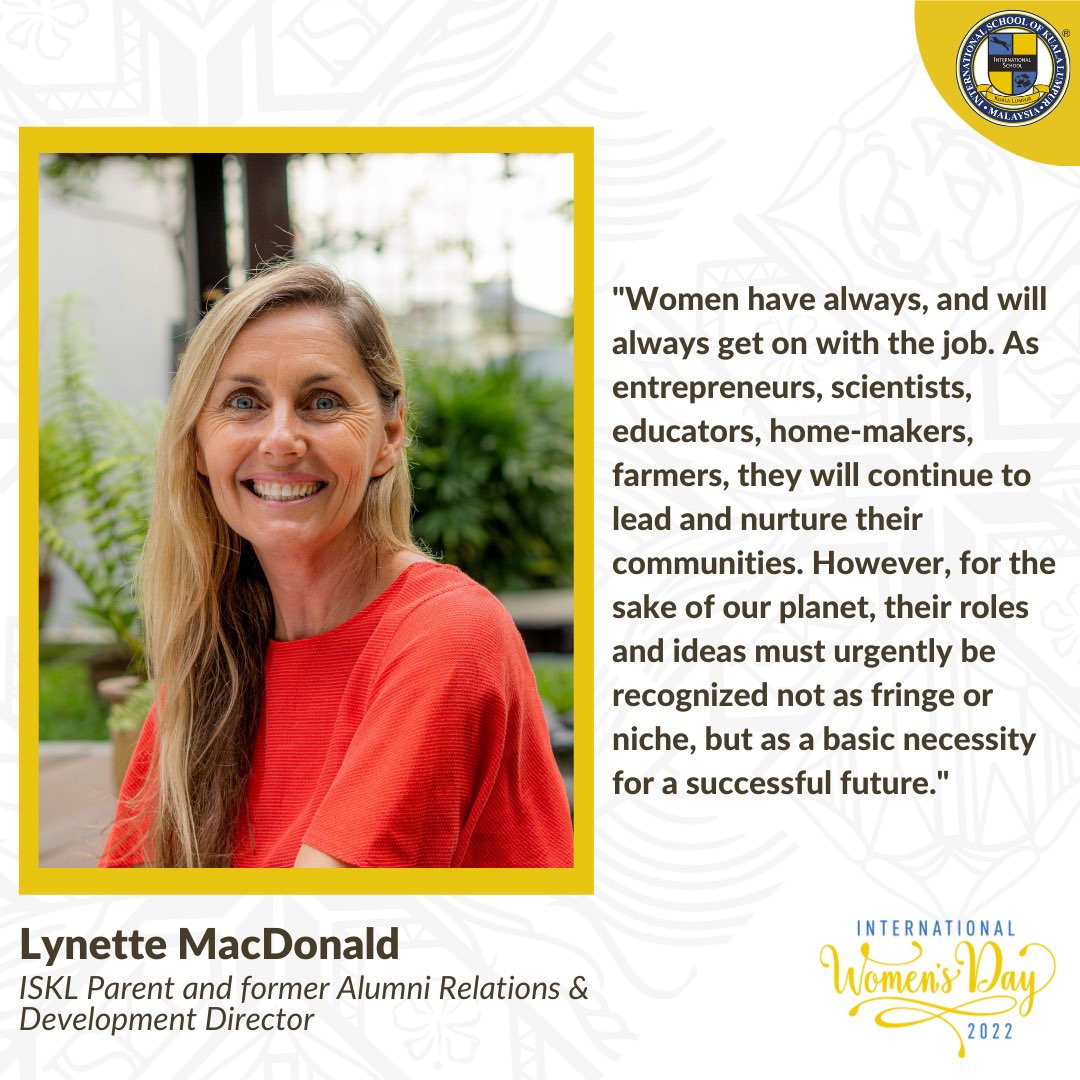 gender imbalances. Worldwide, despite the education gap between boys and girls having been almost eliminated, women routinely earn less than men working the same job, are systematically penalized when they take maternity leave (if it is available at all), and continue to bear most of the responsibility for childcare. Women make up a small fraction of CEOs and leaders, not because they can’t, but because of the entrenched resistance to women in leadership. Interestingly, a recent study from the UK shows that companies with significant levels of female leadership outperform their rivals.
gender imbalances. Worldwide, despite the education gap between boys and girls having been almost eliminated, women routinely earn less than men working the same job, are systematically penalized when they take maternity leave (if it is available at all), and continue to bear most of the responsibility for childcare. Women make up a small fraction of CEOs and leaders, not because they can’t, but because of the entrenched resistance to women in leadership. Interestingly, a recent study from the UK shows that companies with significant levels of female leadership outperform their rivals.
Women have always, and will always get on with the job. As entrepreneurs, scientists, educators, homemakers, farmers, they will continue to lead and nurture their communities. However, for the sake of our planet, their roles and ideas must urgently be recognized not as fringe or niche, but as a basic necessity for a successful future.
- How do you think both women and girls can help change the world for a better, sustainable future?
Kiarra: Women can implement change because of their empathetic and inclusive nature beginning from the primary environment (family life). Consequently, educating women and girls on this issue will allow them to devote time to advocate and problem solve, thus creating a conscious-based leadership with sustainability at the heart of it.
Jiya: By empowering women and girls, I believe we can encourage them to help change the world for a better sustainable future. In a world where gender equality exists, women face fewer obstacles in obtaining positions of high power, such as CEOs. They are therefore able to implement changes and a more sustainable future. Although many women already have jobs of great influence, we have not reached full gender equality in all societies.
Lynette: Women are changing the world for the better, in their communities and in their homes. Female entrepreneurs are setting up small green businesses promoting slow fashion and meat-free foods. Female scientists are developing technologies to help deal with plastic pollution and overfishing. Women educators are nurturing the next generation of children to understand that gender does not equate with worth. At home, they are choosing plastic-free packaging, growing their own food, and helping their families to eat less meat.
Where their voices are less likely to be heard is in leadership; in the boardroom and in government. That is where I believe change must take place now. The status quo has led to a situation where climate disasters are happening with ever greater frequency and intensity. Climate disasters lead to the displacement of people, another of the great disasters of our time.
Our planet requires us to change tack. Whether it is through quotas or other affirmative action, women must be given a seat at the table. Their experience, knowledge, and motivation are too valuable to waste.
- Why should we care about the environment, and what can we do about it?
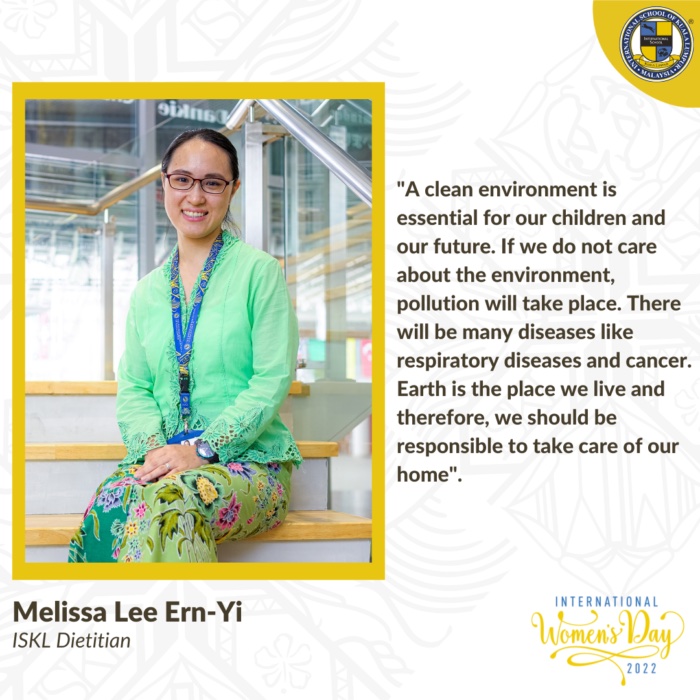
Melissa: A clean environment is essential for our children and our future. If we do not care about the environment, pollution will take place. There will be many diseases like respiratory diseases and cancer. Earth is the place we live, so we should be responsible for taking care of our home.
So, what can we do about it? If we can be more conscious of environmental issues and willing to take baby steps to save the planet, we can make a huge contribution. With the increasing environmental awareness among the public, people worldwide are coming together to fight for a greener future. Therefore, let’s come together and work for hand in hand to make a difference.
Eva: Understanding our role as inhabitants of earth is the first step. We need to take ownership of how we interact with our environment, and our actions directly correlate with the effects we see around us. Of course, we are already seeing negative changes, not by chance, but as a result of years of ignorance. There were specific actions we took and decisions we made collectively that led to what we now know as climate change. But, just like an accumulation of negative actions led to negative change, there are deliberate steps we can take to see positive changes as well. To incite this change, we can be active about our beliefs. Get involved in that weekend event or promote advocacy in your community in ways that may help to inspire others too. Nothing is too small, and undergoing a change in lifestyle overnight is unlikely, but it’s never too late to begin.
Lynette: We should care about not only our own comfort, the quality of food and water we consume, and the air we breathe. We should care about everyone’s environment. That’s why so many are questioning where the single-use (or even multiple-use) plastics on the supermarket shelves go after they hit the trash can. It’s why so many are reducing the amount of meat they consume to hopefully stop the green lungs of our planet, our forests and jungles, from being cut down for grazing land or to produce food to feed animals. It is why people are investigating the environmental credentials of large corporations when they are making their investment decisions. People, and particularly younger people, are looking to a better future.
I was fortunate to help lead the Elementary School rooftop playground project over the past year. We redeveloped the space with new playground equipment and, critically, established extensive gardens to provide shade and connection to nature. Seeing the children playing in that space now, where the environment has been completely transformed with a focus on natural materials, confirms for me the importance to our children of ensuring they have a strong connection with the natural world. After all, these children are our future.
- What is your message of inspiration to other girls/women in changing the world for a greener future?
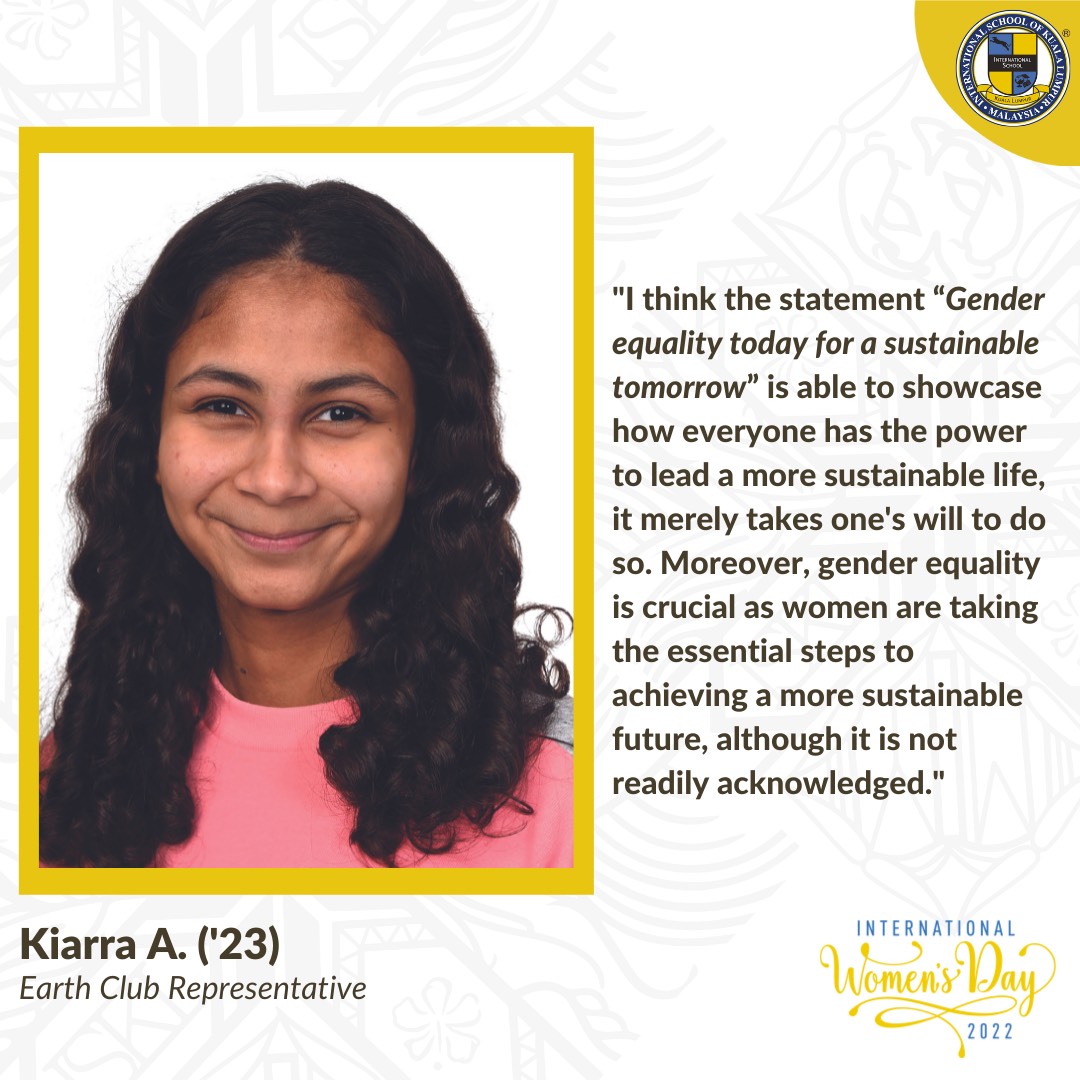 Kiarra: I would encourage more women to be empowered and have gender equality as a catalyst for obtaining peace and a harmonious relationship between humans and the environment enabling a greener future. This can occur through nurturing caregivers and educating the human population to become climate resilient by taking the simple steps of conserving energy and eliminating plastic from our daily life. Furthermore, women can advocate for good governance in big corporations to help save our environment by being
Kiarra: I would encourage more women to be empowered and have gender equality as a catalyst for obtaining peace and a harmonious relationship between humans and the environment enabling a greener future. This can occur through nurturing caregivers and educating the human population to become climate resilient by taking the simple steps of conserving energy and eliminating plastic from our daily life. Furthermore, women can advocate for good governance in big corporations to help save our environment by being
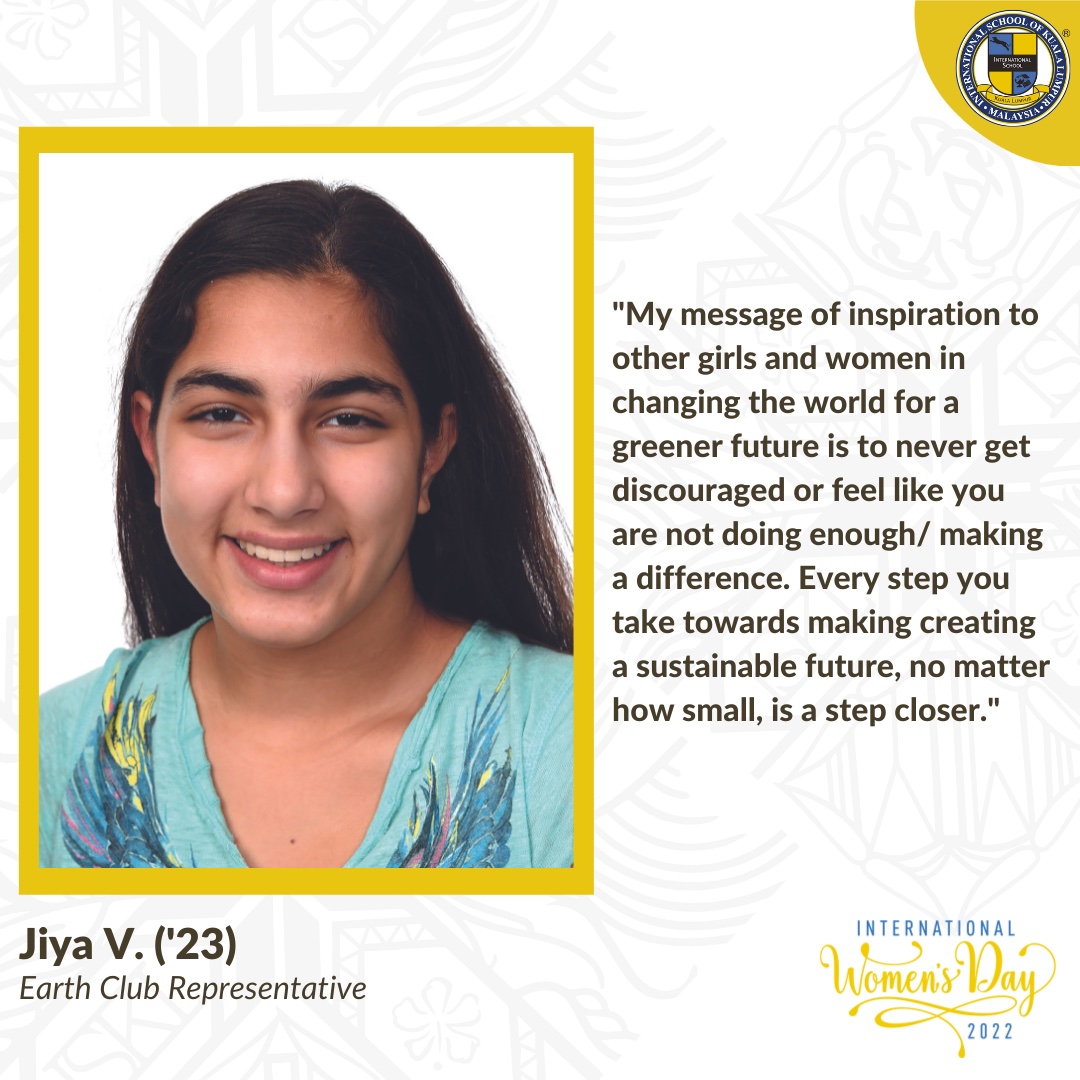
more ethical and reducing carbon emissions. To achieve the Sustainable Development Goal by 2030, women need to be integrated into the effort; women can be change agents by providing a unique insight on the issue of the unsustainable approaches people are taking. It is our turn to mother nature.
Jiya: My message of inspiration to other girls and women in changing the world for a greener future is never to get discouraged or feel like you are not doing enough/ making a difference. Every step you take towards creating a sustainable future, no matter how small, is a step closer.
Lynette: Keep doing the things that matter to you. Find other people of whatever gender who will support you and try not to listen to those who don’t. Make mistakes and learn from them. Be imperfect but keep trying to be better. Support the women and girls around you to reach their full potential too. Be loud and relentless when you need to. Be ambitious!
I know this sounds like a string of sayings from social media, but honestly, remaining focused and positive, and pushing at the door or the glass ceiling that’s in your way continues to be how women make their mark.


